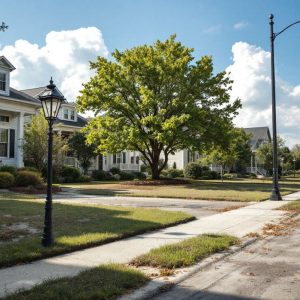Columbia, S.C.: A Community Stands on Edge as Susan Smith Faces Parole Board
In a move that’s sending shockwaves through the South Carolina community, a notorious figure from the state’s past is set to appear before the parole board on November 20, 2024. Susan Smith, the mother who took the lives of her two young sons, will be asking for a chance at freedom, and people are understandably divided.
A Look Back at the Tragedy
It’s hard to believe it’s been nearly 30 years since that tragic day in October 1994. Susan, who was only 23 years old at the time, made headlines after strapping her boys—3-year-old Michael and 14-month-old Alex—into their car seats and rolling her vehicle into John D. Long Lake in Union, South Carolina. What first appeared to be a kidnapping case turned chillingly into a confession of murder after nine grueling days of searching. Smith had initially claimed that a black man had carjacked her with her children inside. However, the truth—her own unfathomable actions—came to light.
Facing the Consequences
Though the evidence against her was overwhelming, the case had its complications. Prosecutor Tommy Pope worked tirelessly, even considering the death penalty at one point, but the jury ultimately settled on a life sentence instead. “I consider it a failure on my part,” Pope shared in a recent interview. “We did everything we could, but I respect the jury’s decision.” The law at the time allowed for Smith to be eligible for parole after serving thirty years. Unbeknownst to the jury, many believed that she would be incarcerated for life.
Fears of Parole
As November 20 approaches, those still touched by the tragedy—especially the father of the boys, David Smith—are bracing themselves for what could prove to be an emotional rollercoaster. David expressed his heartache, stating, “I have been dreading this year for almost 30 years. If she were to get out, that would be a total injustice.” His sentiments echo a general feeling in the community as they grapple with the possibility of a woman convicted of such heinous acts being given a second chance.
The Process of Parole
Parole in South Carolina is no easy feat. The latest figures show that only about 6% of offender requests are granted. For Smith, who fits the profile of a violent offender, she will need a two-thirds majority from the board members to secure her release. Governor Henry McMaster appoints the parole board members, and with one seat vacant, that means Smith requires four positive votes from the remaining six members.
What Happens Next?
As the date nears, the parole board will have Smith’s case file in hand two weeks before her hearing. They’ll consider various factors, such as the opinions of the prosecutor, investigators, and even any disciplinary actions Smith may have faced during her time in prison. And it could get complicated, as she has received sanctions for drug charges and allegations of misconduct with prison staff.
No Solid Ground for Change?
A documentary crew has also caused a stir, as it is reported they paid Smith for her insights and allowed her to provide contact information for victims, including David. “I can’t speak to her heart,” David commented about her potential changes. “But in my opinion, I don’t think she’s really, really changed, and I don’t think she’s going to change.” It’s a sentiment shared by many who are watching the situation unfold.
As we draw closer to the parole hearing, the Columbia community, and indeed the entire state, anxiously awaits the outcome. It’s a moment that holds the weight of nearly three decades of pain, loss, and a complicated understanding of justice.





























